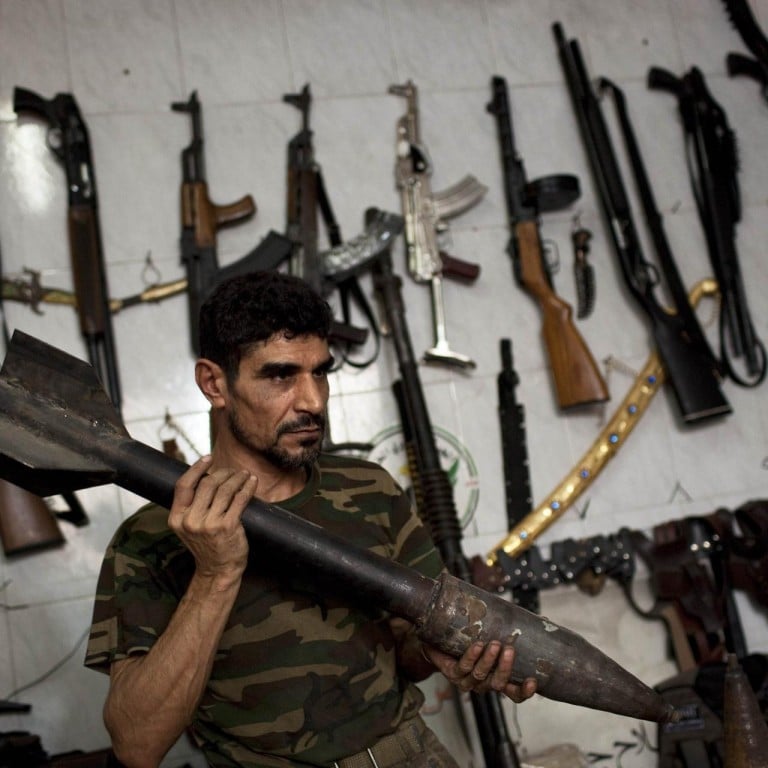
Key Syrian rebel groups abandon opposition political leaders
Key rebel factions abandon political leaders and cast lot with al-Qaeda affiliate while more extreme faction is seen as pushing Islamist agenda
As diplomats at the United Nations push for a peace conference to end Syria's civil war, a collection of some of the country's most powerful rebel groups publicly abandoned the opposition's political leaders, casting their lot with an affiliate of al-Qaeda.
As support for the Western-backed leadership dwindled, a second, more extreme al-Qaeda group carved out footholds across parts of Syria, frequently clashing with mainline rebels who accuse it of making the establishment of an Islamic state a priority over the fight to topple President Bashar al-Assad.
The fractured nature of the opposition, the rising radical Islamist character of some rebel fighters and the increasing complexity of Syria's battle lines have left the exile leadership with diminished clout inside the country and have raised the question of whether it could hold up its end of any agreement reached to end the war.
The deep differences between many of those fighting in Syria and the political leaders who have represented the opposition abroad spilled into the open late on Tuesday, when 11 rebel groups declared that the opposition could be represented only by people who have "lived their troubles and shared in what they have sacrificed".
Distancing themselves from the exiled opposition's call for a democratic, civil government to replace Assad, they called on all military and civilian groups in Syria to "unify in a clear Islamic frame".
Those who signed included three groups aligned with the Western-backed opposition's Supreme Military Council.
"If the groups involved stand by this statement, I think this could be a very big deal, especially if it develops into a more-structured alliance instead of just a joint position," political analyst Aron Lund said.
"It basically means that some of the biggest mainstream Islamist forces within the so-called FSA are breaking up with the political leadership appointed for them by the West and Gulf states to cast their lot with more hardline and anti-Western Islamists," he said.
The statement was issued just as Western nations are striving to raise the profile of the "moderate" Syrian political opposition, which is led by Ahmad al-Jarba. The United States and its allies have been reluctant to fully align with and arm the rebels because their ranks are heavily populated by Islamists.
France had scheduled an event for later yesterday on the sidelines of the UN General Assembly at which Jarba was to speak along with foreign ministers who have backed him, including US Secretary of State John Kerry.
The latest split in the opposition emerged as the United States, Russia and other permanent members of the UN Security Council were making progress on another front: drafting a council resolution that would enforce an agreement on eliminating Syria's vast chemical weapons arsenal.
A Western diplomat said that agreement had been reached on about 80 per cent of the resolution and that he was "cautiously optimistic" it would be settled this week.
Assad said in an interview with Venezuelan television station Telesur yesterday that Syria was committed to the deal to hand over its chemical weapons. He said Damascus had begun to send the required details of its chemical arsenal to the Organisation for the Prohibition of Chemical Weapons, which is overseeing the deal, and that its inspectors were expected in Syria.
"As the Syrian government, there are no serious obstacles," he said.
The rifts between the exile opposition and those fighting Assad's forces inside Syria have raised questions about whether the opposition's political leadership has sufficient influence in the country to hold up its end if an agreement was ever reached to end the civil war.
"At this stage, the political opposition does not have the credibility with or the leverage over the armed groups on the ground to enforce an agreement that the armed groups reject," said Noah Bonsey, who studies the Syrian opposition for the International Crisis Group. "You need two parties for an agreement, and there is no viable political alternative to the coalition," he said, defining a disconnect between the diplomatic efforts taking shape in New York and the reality across the war-torn country.
